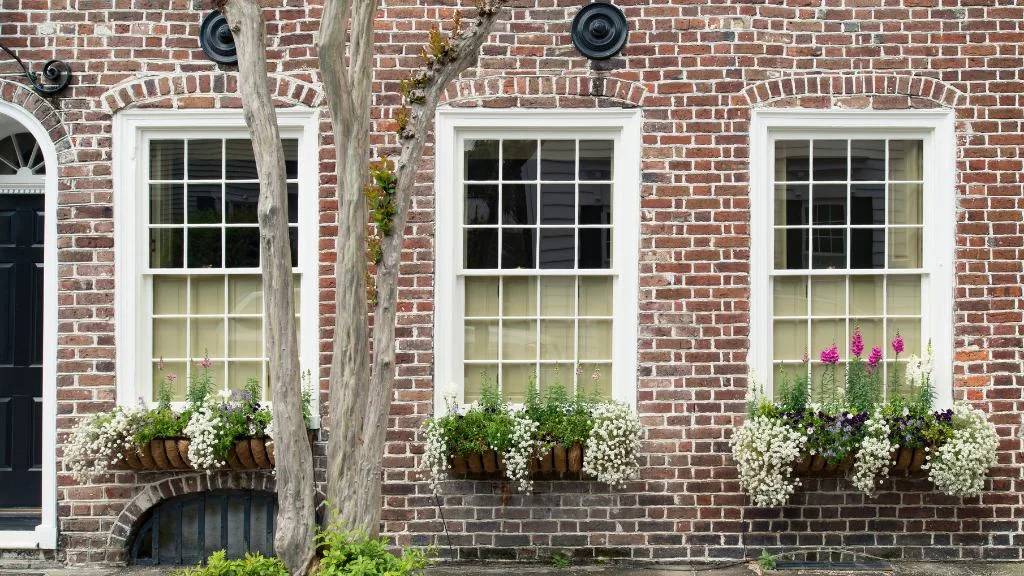
Windows play a vital role in your home’s energy efficiency, aesthetic appeal, and overall functionality. However, as a homeowner, you might be wondering how long your windows should last before needing replacement.
The lifespan of windows can vary depending on various factors such as the material, installation quality, and maintenance. In this article, we’ll provide you with expert insights into the average lifespan of different types of windows and what factors can impact their longevity.
Whether you’re in the process of building a new home, looking to replace old windows, or curious about the lifespan of your current windows, this guide will equip you with the knowledge to make informed decisions.
So, let’s dive in and find out how long your windows should last!
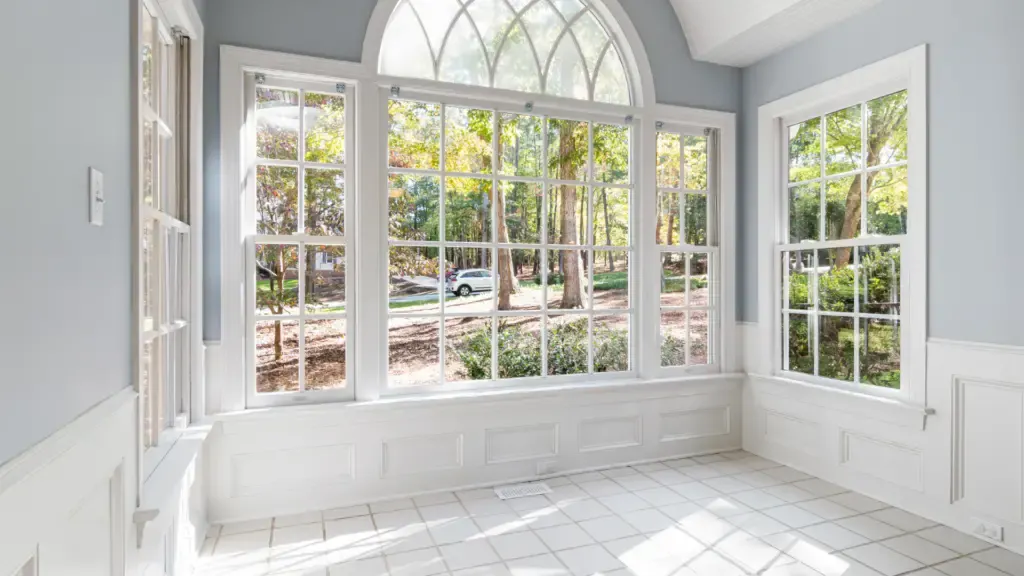
Factors Impacting Window Lifespan
Window Materials
Different window materials have varying lifespans:
- Wood windows: Wood windows require regular maintenance and can last between 15-30 years, depending on the quality and care given.
- Vinyl windows: These windows are low maintenance and can last anywhere from 20-40 years.
- Fiberglass windows: Fiberglass is a strong and durable material, with a longer lifespan of about 30-50 years.
Window Frames
The lifespan of your window frames depends on the material:
- Wood frames: With proper maintenance, wood frames can last 20-50 years, but are more susceptible to moisture and insect damage.
- Vinyl frames: Low maintenance and weather-resistant, vinyl frames can last up to 40 years.
- Fiberglass frames: Fiberglass frames provide excellent insulation, are energy-efficient, and can last over 50 years with proper care.
Glazing and Insulating Gas
The type of glazing and insulating gas used in your windows can impact their lifespan and energy efficiency:
- Double-glazed windows: These windows typically last 20 years or more and offer increased insulation and energy efficiency.
- Insulating gas: Newer windows may contain insulating gases like argon or krypton, which improve thermal performance and can extend the lifespan of the window.
Window Quality
Higher quality windows generally have a longer lifespan:
- High-quality windows: These windows often have better materials, construction, and design, resulting in a longer lifespan of 20-50 years on average.
- Lower-quality windows: Windows of lower quality may have cheaper components, less precise construction, and a shorter lifespan, usually around 10-20 years.
Installation
Proper installation is crucial for a longer-lasting window:
- A well-installed window will have fewer issues with air leaks, moisture penetration, and structural failures.
- Poor or improper installation can lead to issues like drafts or water damage, resulting in a shortened lifespan for your windows.
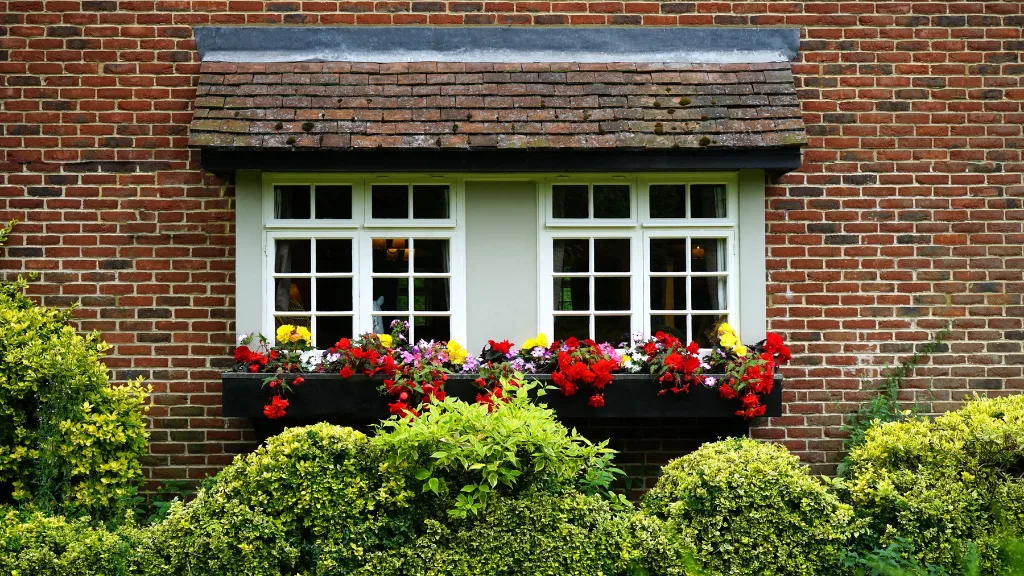
Common Window Types and Their Lifespans
In this section, we will discuss the typical lifespans of four common window types: Vinyl Windows, Wood Windows, Fiberglass Windows, and Aluminum Frame Windows.
Keep in mind that your window’s longevity will depend on factors such as materials, installation, and maintenance.
Vinyl Windows
Vinyl windows are a popular choice due to their affordability and low maintenance requirements. They typically have a lifespan of around 20 to 40 years.
Some benefits of vinyl windows include:
- Energy efficiency
- Resistance to moisture and UV rays
- Wide range of color and style options
To maintain your vinyl windows, occasionally clean the frames with mild soap and water, and ensure that weatherstripping remains in good condition.
Wood Windows
Wood windows provide a timeless appearance and insulate well, but they do require more maintenance than other window types. Their lifespan ranges from 15 to 30 years, depending on the quality of the wood and upkeep.
Some points to consider regarding wooden windows include:
- The need for regular painting or staining to prevent rot and decay
- Potential risk of warping or swelling with humidity changes
To prolong the life of your wood windows, promptly address any signs of damage or decay and maintain proper sealing.
Fiberglass Windows
Fiberglass windows are known for their durability and energy efficiency. They typically last around 40 to 50 years or more.
Some highlights of fiberglass windows are:
- Higher initial costs offset by longevity
- Resistant to rot, corrosion, and weather-related damage
- Excellent insulation properties
To care for your fiberglass windows, simply clean the frames with a damp cloth and mild detergent when needed.
Aluminum Frame Windows
Aluminum frame windows have a lifespan of 15 to 20 years. They are strong, lightweight, and relatively low-maintenance.
However, they do have some drawbacks:
- Lower energy efficiency compared to other window materials
- Susceptible to pitting and corrosion in coastal areas
To maintain your aluminum frame windows, clean them with mild soap and water, and inspect them for signs of corrosion or damage periodically.
By understanding the different window materials and their respective lifespans, you can make an informed decision when selecting or replacing windows in your home.
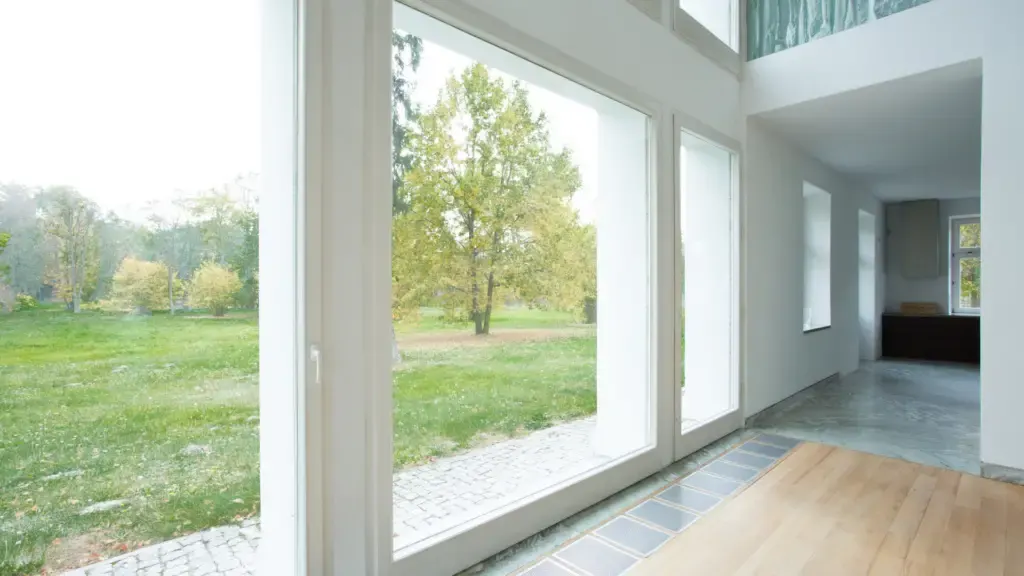
Signs It’s Time to Replace Your Windows
Foggy Glass
If you notice condensation between the window panes, this could indicate a broken seal, allowing moisture to become trapped. This not only makes your windows foggy but also reduces their energy efficiency.
It’s essential to address and replace foggy windows to maintain your home’s insulation.
Air Leaks
Air leaks through your windows can significantly affect your home’s comfort level and energy use. As your windows age, the seals can wear out, and spaces can form around the frame.
If you feel a breeze near the window or see visible gaps, it’s time to consider replacing your windows.
Drafty Rooms
Drafty rooms are often a sign that your windows are not providing adequate insulation. This could be due to a variety of reasons, such as single-glazing, seal failures, or improper installation.
Replacing your windows with new, energy-efficient models can help eliminate drafts and improve your home’s comfort level.
Energy Use
If your energy bills are higher than usual or consistently above average, it’s possible that your windows are not performing efficiently. Older windows or those with air leaks and drafty spaces can let in outside air, causing increased heating and cooling costs.
Consider replacing your windows with energy-efficient options to save money and improve your home’s overall performance.
By being mindful of these signs, you can proactively identify when it’s time to replace your windows and enjoy the benefits of increased energy efficiency and improved comfort in your home.
Choosing the Right Windows for Your Home
Different Types of Windows
When selecting windows for your home, it’s important to consider the different types of windows available:
- Single-hung windows: These have a fixed upper sash and a movable lower sash.
- Double-hung windows: Both upper and lower sashes can be moved, providing better ventilation.
- Casement windows: Hinged on the side and open outward, offering excellent views and a breeze.
- Sliding windows: These windows slide horizontally and require little maintenance.
- Awning windows: Hinged at the top, they open outward and provide protection from the rain.
- Picture windows: Fixed windows that offer unobstructed views and allow plenty of light.
Styles
Different window styles can enhance your home’s overall appearance:
- Traditional: Consider double-hung or casement windows with divided lites for a classic look.
- Modern: Opt for large picture windows or narrow horizontal sliding windows to complement a minimalist aesthetic.
- Craftsman: Select casement or awning windows, often with a combination of art glass and clear glass for added character.
- Colonial: Choose double-hung windows with divided lites, traditionally arranged in grids of six or nine panes.
Energy Efficiency
Energy-efficient windows can save you money and reduce your environmental impact:
- Look for windows with the ENERGY STAR® certification, which meet strict energy efficiency requirements.
- Consider double-pane or triple-pane windows; insulating gas between the panes can help keep your home warmer in the winter and cooler in the summer.
- Low-emissivity (low-E) coatings on the glass can reduce the amount of UV radiation that enters your home, limiting sun damage to your furnishings while keeping your home cooler.
Price
Lastly, consider your budget when selecting your new windows:
- Vinyl windows tend to be the most affordable option.
- Wood windows provide a traditional look and better insulation but are often more expensive and require more maintenance.
- Aluminum windows are typically less expensive than wood and more expensive than vinyl, and have low maintenance requirements.
- Fiberglass windows can be more expensive upfront but are known for their durability and low maintenance.
Remember that investing in energy-efficient windows can save you money in the long run by reducing your energy bills.

Window Replacement and Warranties
When to Replace Windows
Generally, windows should last about 20 to 50 years, depending on the type and material used. However, there are instances where they could last longer.
To determine if it’s time for window replacement, look for the following signs:
- Fogged glass
- Damaged frames
- Drafty rooms
- Difficulty opening or closing the window
- Increased energy bills
Window Replacement Process
When you decide to replace your windows, follow these steps to ensure a smooth process:
- Research: Identify the type and material of windows that best suit your needs and preferences.
- Hire a professional: Select a reputable contractor or window company to ensure proper installation and quality work.
- Prepare your home: Clear the area surrounding your windows and remove any window treatments.
- Installation: Your contractor will remove the old windows, install the new windows, and ensure they are properly sealed.
- Cleanup: The contractor will dispose of the old windows and ensure your home is clean after installation.
Warranty Coverage
When purchasing new windows, pay close attention to the warranty offered. Warranties can vary greatly in terms of coverage and duration. Some common aspects of window warranties include:
- Materials: Window materials, such as vinyl extrusions in the frame, may be guaranteed to last a specific amount of time (e.g., 10 years) without deteriorating or showing signs of wear and tear.
- Workmanship: The quality of installation and labor provided by the window company may be covered by the warranty if there are any issues resulting from improper installation.
- Glass: Some warranties cover the glass in the window for breakage or seal failure.
Ensure you understand the terms of the warranty before purchasing, as this will give you confidence in the longevity and quality of your windows.
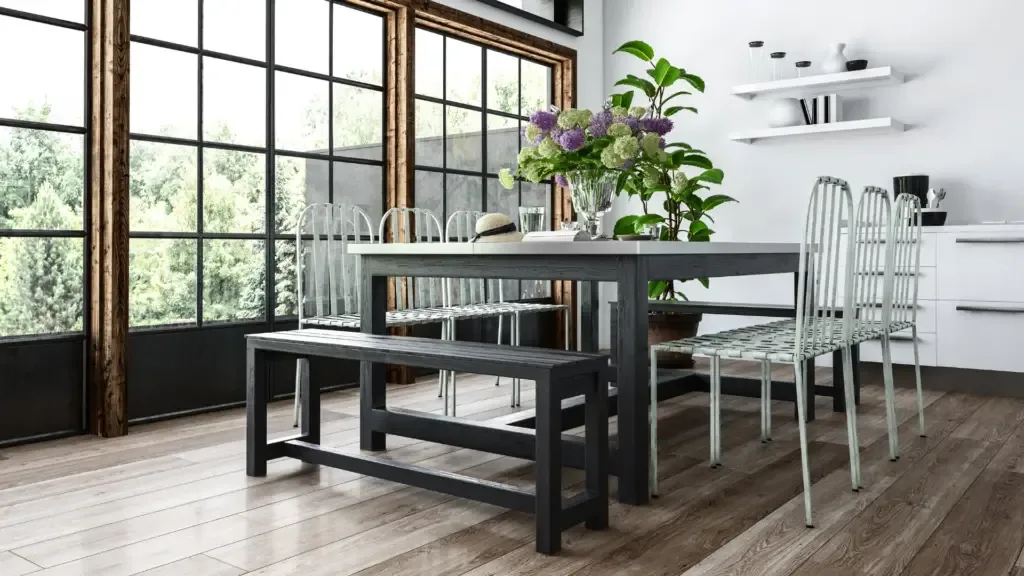
Tips for Window Maintenance
As a homeowner, it’s essential to ensure the longevity of your windows. Here are some essential tips for window maintenance that will help you keep them in good condition:
- Clean glass and frames regularly: Make it a habit to clean the windowpanes from the inside about once a week. For the outside, cleaning should be done once a month. However, if you live near the ocean or in an area with extreme weather conditions, you should clean the outside of your windows more frequently, possibly up to four times per year. Remember to use a non-abrasive cleaner and gently wipe the windows to avoid damaging the Heat Mirror and Low-E film.
- Check the frames for damage: During your routine cleaning, inspect the window frames for any visible damage, such as dents. Make a note of any issues and contact a professional for advice on repairing or maintaining your window frames.
- Clean and lubricate window tracks: Dirt and debris can build up in your window tracks, causing your windows to get stuck or become difficult to open and close. To prevent this, clean the tracks with a cloth or brush and lubricate them with a silicone-based lubricant.
- Ensure proper seal and insulation: Check the window seals and weather stripping periodically for any wear and tear or gaps. Replace any damaged or worn-out seals to maintain energy efficiency and avoid drafts.
By following these window maintenance tips, you can help prolong the lifespan of your windows and keep them functioning well.
Impact of Windows on Energy Savings
Energy-Efficient Windows
Energy-efficient windows can improve your indoor comfort while saving money on heating and cooling costs. By selecting windows with ENERGY STAR qualifications, you can be assured that these windows meet specific energy efficiency standards.
Replacing your windows with energy-efficient options may save you between $126 to $465 a year, depending on your current windows and climate.
Double-Pane Windows
When you replace single-pane windows with double-pane windows, you may save between $101 to $583 per year. This is because double-pane windows reduce heat gain and heat loss, which account for 25%-30% of residential heating and cooling energy use.
Double-pane windows can also save you $27 to $197 per year in energy costs, making them an excellent long-term investment for your home.
Storm Windows
In cases where your windows are structurally sound but may be an older single-pane style or experiencing broken seals, adding storm windows can significantly enhance their energy efficiency. Installing well-sealed, low-emissivity coated storm windows can:
- Reduce air leakage by 10%
- Block 35% more solar heat gain than the window alone
This can lead to notable energy savings and improved comfort in your home. Storm windows are a more affordable solution than full window replacement if you’re looking to upgrade the efficiency of your existing windows without breaking the bank.

